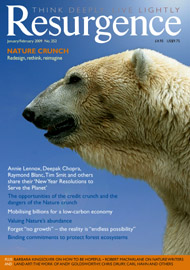OUR GOVERNMENT interferes in every aspect of our lives but it does not actually govern, in any worthwhile sense. Power now resides with those who control the world’s finances – whom Larry Elliott and Dan Atkinson call “the New Olympians”. Like their ancient counterparts, the New Olympians have god-like powers, which they exercise with self-interest and whimsy. Democracy, as conceived in Britain and the US, now means that we, Joe Citizens (aka ‘consumers’ or ‘customers’) are allowed to vote now and again for politicians whom we hope might persuade the New Olympians, at least as far as they find convenient, to act on our behalf. Democratic government has become an exercise in supplication.
The New Olympians rose to power after 1962 when Milton Friedman in Chicago argued in Capitalism and Freedom that all the world’s problems could be solved by the free market. No producer would make what people did not want – but everything that people do want; and so the free market would be perfectly democratic. Dishonesty would be immediately exposed and crooked traders would go to the wall, just as Adam Smith, two centuries earlier, had predicted must happen; and so the free market would be both transparent and honest. Everyone would trade according to their own “comparative advantage” (the thing that they could produce more easily than anyone else) and no-one need waste time producing things that they found difficult – just as David Ricardo, writing soon after Smith, had advocated. So the market would be optimally efficient. Indeed, the market would take care of morality itself – since nothing could happen that people did not want to happen; and who, apart from people, can say whatshould happen?
This irreducibly simple idea appealed in particular to the people who call the shots. Financiers and entrepreneurs perceived that if governments let them off the hook then they could be super-rich – and indeed, they have become the New Olympians. Governments were happy to take a back seat since this made their job easier, while, without doing much, they could claim credit for economic growth. All the statistics within and between countries have shown that the rich have grown richer these past thirty years while the poor have grown poorer. But that’s life; and in any case it will sort itself out with more of the same. Or so we’re told.
As the whole adventure now comes horribly to grief the New Olympians are responding with breathtaking cheek, as Elliott and Atkinson illustrate with examples that are wonderfully up to date. Throughout their rise the New Olympians have demanded ever more freedom but now they whine to governments to bail them out – and since governments are now in hock to the corporates, we (Joe Taxpayers) are, for example, giving billions to Northern Rock, after it had borrowed money acquired from poor Americans who obviously would not be able to pay it back.
Fly-by-night credit card company Egg recently pretended that some of its safest investors were in fact unsafe and so cut them off – but in reality it did so because these customers were unlikely to go into debt and so, for a credit company, were unprofitable. UK Prime Minister Gordon Brown and Chancellor of the Exchequer Alistair Darling continue to insist that essential but nonetheless low-paid workers should be paid even less, while non-resident fat-cats can avoid taxes so long as they deign to live in Britain. All in all our economy has emerged as a naked exercise in embezzlement; and still it’s called democracy.
In their last chapters Elliott and Atkinson suggest solutions including the one that was obvious to Thomas Jefferson: to break up the corporates. Hope lies in the growing anger of the middle classes, who for the first time are suffering too – and have more power than the poor, who take suffering for granted. In truth, as the authors do not discuss, the answers to the world’s economy cannot be found entirely within the economy itself. We need continuously to make explicit our moral principles – what it is we are trying to achieve, and why – and to gear the world’s economy to physical and biological reality, with ecological science up front. Nonetheless, this book is a valuable addition to the growing literature of discontent: essential background to the renaissance the world now urgently needs.






